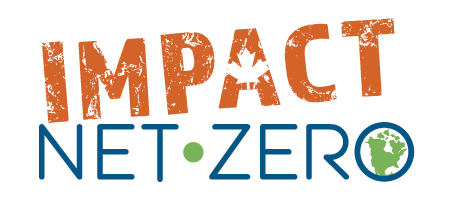Carbon Accountability: Institutionalizing Governance, a Carbon Budget and an Offset Credits Policy
City Council and Item 2023.IE3.4
City Council adopted this Item on May 10, 2023, which establishes a carbon budgeting and accountability framework. This is an important step to help steer the City to reach net zero by 2040. We present here a summary of the main points of the Item, and our take and actions.
The big picture: Net Zero and Toronto
What do carbon budgeting and accountability mean?
A carbon budget refers to a fixed amount of greenhouse gas emissions allowed over a certain period (“budget”) to meet emission and climate targets. It is part of an emissions accountability framework, which sets standards and processes to manage the budget. The carbon budget is similar to a household budget, where limited units of emissions are managed instead of limited dollars.
Summary of the Carbon Accountability Report
- A new chapter of the report lays the foundation of the Carbon Accountability system for the City; this chapter, “Climate Change Goals and Governance” will be incorporated in the Toronto Municipal Code
- A new “Offset Credits Policy” defines how the City will purchase or sell carbon credits to offset its own operations, in a science-based and fiscally responsible manner; please see here for an Explainer on carbon offsets
- A description of the tools and resources needed to implement the Carbon Accountability system, including annual reports on carbon budgeting with metrics that will encourage public engagement
Summary of Recommendations from IE Committee
- City Council adopts the new chapter on Climate Change Goals and Governance, and the new Offset Credits Policy
- The City only purchases offset credits for carbon removal from the voluntary market after an approval process, which includes validation of the effectiveness of such credits based on the best available science
- The IE Committee reports in the second quarter of 2025 on a limit on offset credits the City can purchase to achieve net zero emissions in its operations in 2040
Our take and our actions
- The establishment of a Carbon Accountability framework that includes a carbon budget is an important step. The framework helps set emission limits with timelines, codifies them into the City’s operations, and incorporates climate considerations into the City’s decision making and financial processes
- The City’s corporate emissions are only about 5% of the City’s community-wide emissions. Residents, together with other levels of governments, private and non-profit sectors, thus have a key role to play to help reduce community-wide emissions for the City reach its net zero targets
- The setting of the carbon budget applies to the City’s community-wide emissions and the corporate emissions from the City’s internal operations, while the policy on the use of carbon offset credits applies only to corporate emissions. This is due to the potential high cost of extending the policy beyond the City’s emissions. The verification of the effectiveness of offsets being considered could also be of use to different sectors of the City
- We will follow the City’s development of the carbon budget and offset credit policies, and will contact the IE Committee and participate in public engagement
For the record: Item 2023.IE3.4
- This item establishes an accountability system to manage emissions, following the Carbon Accountability Report of the IE Committee
- City Council adopted this item without amendment on May 10, 2023, both the Report and the recommendations from the Infrastructure and Environment Committee
- The IE Committee had earlier considered this item on April 26, 2023 and adopted it with amendments

